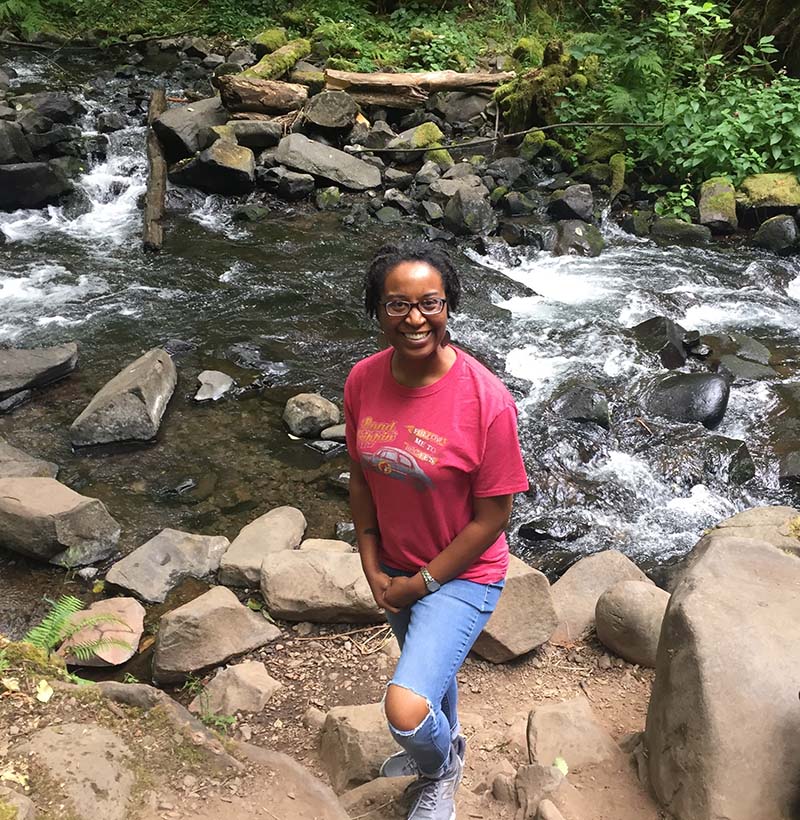
Doctoral student Twyla Hough utilizes CCFCS resources to develop life skills curriculum
Twyla Hough first heard of the Curriculum Center for Family and Consumer Sciences (CCFCS) during her graduate research assistantship, which was based in the center.
“I connected with the staff, Mara Driscoll and Becky Martinez, during my shifts and learned more about their offerings,” Hough said. “During COVID, I had the opportunity to collaborate with Mara remotely on a project to make the PowerPoint resources accessible for individuals with disabilities. I enjoyed working on this project because it was a creative outlet. I had to be creative in re-designing the slide decks to meet the accessibility requirements.”
The center has over 50 years of history with the College of Human Sciences and is the leading center in the nation for family and consumer sciences curriculum. It is the only curricular center in the United States that specializes in resources for family and consumer sciences teachers.
“Through the center, I was introduced to the Today’s Life Skills (TLS) curriculum which I later used to develop a curriculum for veteran and military students in one of my graduate courses.”
With the resources at CCFCS, Hough was able to complete numerous course projects in life skills, a content area that specifically interested her.
“Recently, I used the TLS curriculum to develop a four-session financial literacy class that I taught to a student as part of a local residential program for young women,” Hough explained. “This was a rewarding experience because I would like to engage in community-based life skills programming and initiatives when I complete my degree.”
Hough’s exposure to the TLS curriculum at the center made her realize the connection between her passion for teaching life skills to young people and her family and consumer sciences (FCS) research and career interests. This reinforced that a Ph.D. in Family and Consumer Sciences education was the right path for her.
“The center has curriculum that can be used to support lessons in the classroom and in the community,” Hough said. “It is nice not to ‘reinvent the wheel’ when developing content for community programs and initiatives. This is ideal for students who are active in community service programming. I think students who are studying FCS education can find value in becoming familiar with the Center’s FCS curriculum offerings as well.”
